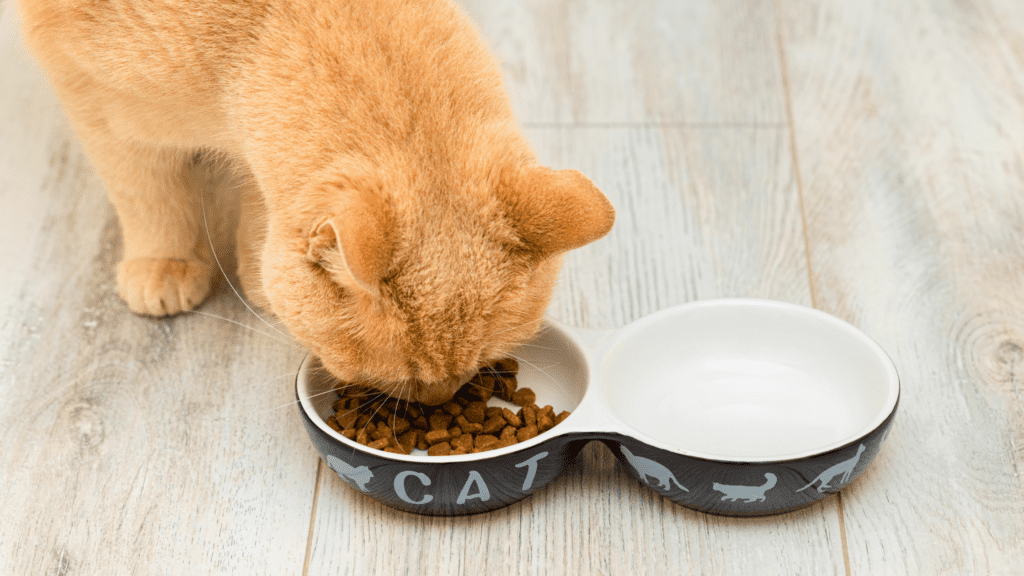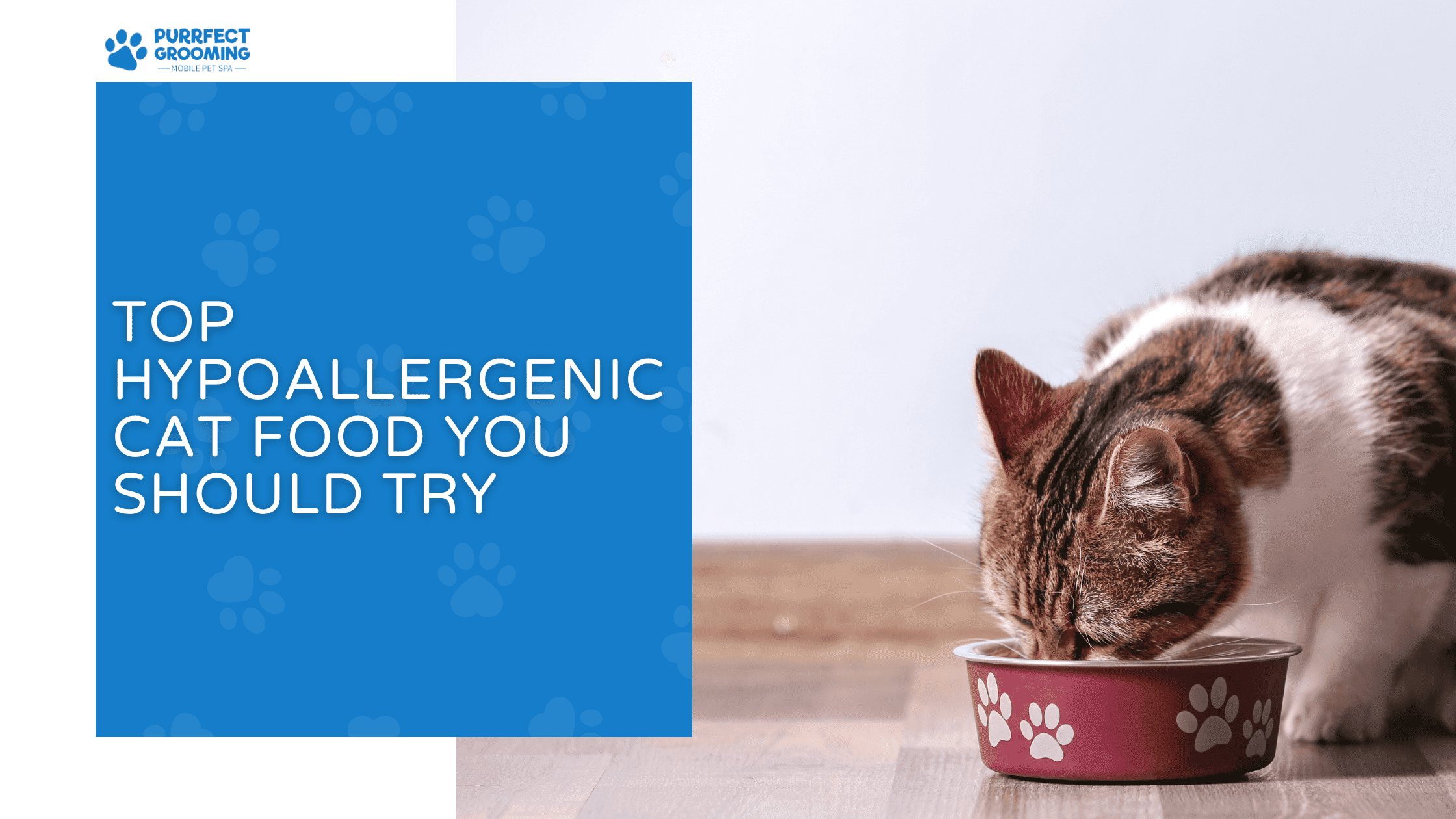Top 5 Hypoallergenic Cat Food You Should Try
If your feline friend struggles with food allergies or sensitivities, choosing the right hypoallergenic cat food is crucial for their health and well-being. Food allergies in cats can lead to symptoms such as vomiting, diarrhea, excessive scratching, or even skin rashes. By switching to a hypoallergenic diet for cats, you can alleviate these issues and provide them with the nutrition they need without triggering allergic reactions.In this guide, we’ll explore the top 5 hypoallergenic cat foods you should consider, focusing on their benefits, ingredients, and suitability for cats with food allergies. Additionally, we’ll include easy-to-read tables to help you compare options.
Studies show that food allergies account for about 10-15% of all feline allergies. The right hypoallergenic food for cats eliminates common allergens and provides balanced nutrition to prevent allergic reactions. In this guide, we’ll explore the best options for cat food for cats with allergies, benefits of a feline hypoallergenic diet, and how to choose the best hypoallergenic kitten food for your pet.
What Is Hypoallergenic Cat Food?
Hypoallergenic food for cats is designed to minimize allergic reactions by avoiding common allergens like beef, dairy, wheat, corn, and soy. These diets often feature novel proteins (like duck or rabbit) or hydrolyzed proteins, where the protein is broken into smaller components to prevent the immune system from recognizing them as allergens.
Such diets can be essential for cats with sensitivities or conditions like inflammatory bowel disease (IBD). For kittens, opting for hypoallergenic kitten food ensures a healthy start to life without complications.
Benefits of a Hypoallergenic Diet for Cats
- Reduces Allergy Symptoms: Helps manage itching, digestive problems, and skin conditions.
- Improves Digestion: Supports gut health with high-quality ingredients.
- Promotes Overall Health: Supplies essential nutrients without harmful allergens.
Top 5 Hypoallergenic Cat Foods You Should Try
Here are the best options for cat food for cats with allergies, tailored to meet the dietary needs of your sensitive feline.
1. Hill’s Prescription Diet z/d
Hill’s z/d is a trusted choice for a feline hypoallergenic diet and is highly recommended by veterinarians.
- Key Features: Contains hydrolyzed proteins for easy digestion and avoids common allergens.
- Best For: Cats with severe allergies or digestive issues.
| Feature | Details |
| Protein Source | Hydrolyzed chicken liver |
| Grain-Free | Yes |
| Suitable for Kittens | No |
| Veterinary Approval | Required |
2. Royal Canin Veterinary Diet Hydrolyzed Protein
Royal Canin’s specialized formula supports both digestive health and skin sensitivities.
- Key Features: Hydrolyzed soy protein and optimal nutrient levels.
- Best For: Cats with skin reactions or food sensitivities.
| Feature | Details |
| Protein Source | Hydrolyzed soy |
| Grain-Free | No |
| Suitable for Kittens | No |
| Veterinary Approval | Required |
3. Blue Buffalo Basics Limited Ingredient Diet
This grain-free option focuses on a limited number of ingredients to reduce allergic reactions.
- Key Features: Features novel protein sources like duck or fish, along with easy-to-digest carbohydrates.
- Best For: Cats with mild to moderate allergies.
| Feature | Details |
| Protein Source | Duck, fish, or turkey |
| Grain-Free | Yes |
| Suitable for Kittens | Yes |
| Veterinary Approval | Not Required |

4. Natural Balance L.I.D. (Limited Ingredient Diet)
Natural Balance offers a simple yet effective formula for sensitive cats.
- Key Features: Contains a single protein source and no artificial additives.
- Best For: Cats needing straightforward, natural nutrition.
| Feature | Details |
| Protein Source | Salmon or duck |
| Grain-Free | Yes |
| Suitable for Kittens | Yes |
| Veterinary Approval | Not Required |
5. Purina Pro Plan Veterinary Diets HA Hydrolyzed Formula
Designed by experts, this diet is highly digestible and eliminates allergens effectively.
- Key Features: Uses hydrolyzed proteins and is enriched with antioxidants.
- Best For: Cats with complex allergy issues.
| Feature | Details |
| Protein Source | Hydrolyzed chicken |
| Grain-Free | No |
| Suitable for Kittens | No |
| Veterinary Approval | Required |
How to Choose the Right Hypoallergenic Cat Food
When selecting a hypoallergenic diet for cats, consider the following:
- Consult Your Vet: Always seek professional advice, especially for severe allergies.
- Check Ingredients: Look for novel proteins or hydrolyzed proteins and avoid common allergens.
- Monitor Symptoms: Transition to a new diet gradually and observe any changes in your cat’s health.
Conclusion
Switching to the right hypoallergenic cat food can make a world of difference for your furry friend. Whether you need a solution for mild allergies or more complex dietary needs, these top 5 options cover a range of needs.
Don’t forget, starting a hypoallergenic diet for cats requires patience and observation. Always introduce new food slowly and consult your veterinarian to ensure you’re making the best choice for your pet.By investing in the best hypoallergenic food for cats, you’ll be providing your beloved feline with a healthier, happier life.
For pet owners in South Florida, remember that PURRFECT GROOMING not only provides top-notch grooming but also shares expert tips for keeping your pets healthy and happy! Reach out to us today to learn more.
FAQs
1. What is hypoallergenic cat food, and how does it help cats with allergies?
Hypoallergenic cat food is specially formulated to reduce the risk of allergic reactions in cats. It typically avoids common allergens like beef, dairy, wheat, and soy, using novel or hydrolyzed proteins instead. This helps alleviate symptoms such as itching, vomiting, and digestive issues.
2. How do I know if my cat needs hypoallergenic food?
If your cat exhibits signs of food allergies—such as excessive scratching, skin irritations, vomiting, or diarrhea—consult your veterinarian. They may recommend an elimination diet or hypoallergenic food to identify and manage the allergies.
3. Can kittens eat hypoallergenic cat food?
Yes, some hypoallergenic cat foods are specifically formulated for kittens. Look for products labeled as suitable for kittens to ensure they receive the nutrients needed for growth while avoiding allergens.
4. How long does it take to see results after switching to hypoallergenic food?
It can take 6-8 weeks to notice improvements in your cat’s symptoms after switching to a hypoallergenic diet. Be consistent and monitor for changes in their skin, coat, digestion, and overall health.
5. Is hypoallergenic cat food only available with a veterinary prescription?
Not always. Some hypoallergenic foods, such as limited ingredient diets, can be purchased without a prescription. However, for severe allergies or specialized formulas (e.g., hydrolyzed protein diets), a prescription may be required.
